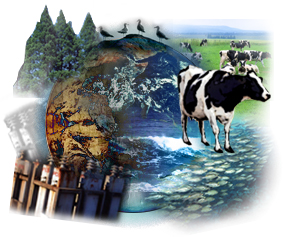New limits for persistent organic pollutants in waste are to be introduced in the European Union after representatives of the European Parliament and EU countries clinched a deal on Monday night.
The agreement was an important step toward a circular economy, cleaner and respectful of human health and the environment.
This is according to the French representatives, who chaired the negotiations, on Twitter.
Persistent organic pollutants (POP) are chemicals that are particularly long-lived.
They can enter the food chain by accumulating in organisms and harm the health of humans and animals.
According to the European Commission, POPs are no longer used in new products in the EU.
They can however still be detected in waste from some products, including waterproof textiles, furniture, plastics or electronic equipment.
Under last night’s agreement, new limits are now to be introduced for example for perfluorooctanoic acid (PFOA), the salts and related compounds which are found in waterproof textiles and firefighting foam.
The agreement must now be formally approved by the council, the EU body representing all 27 EU countries, and the plenary of the European Parliament.
This is however considered a formality.
dpa



